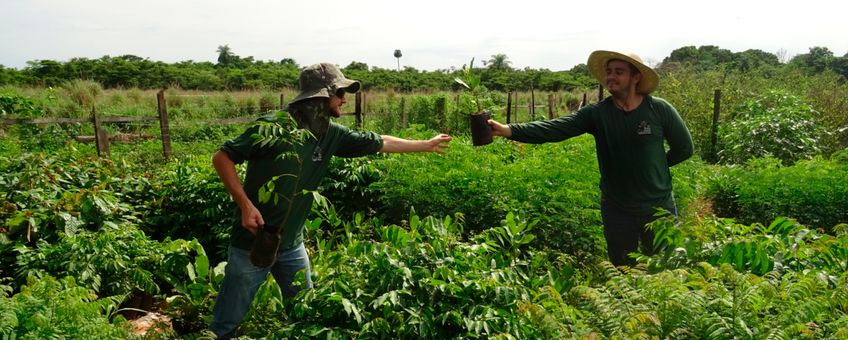
Brazilian drought impedes Dutch reforestation project
Black Jaguar FoundationThe Black Jaguar foundation is working on an ambitious reforestation project in Brazil. They will plant almost two billion native trees, over a length of 2600 kilometres. The planting season usually lasts from October till March. This is the wet season, in which newly planted seedlings have a bigger survival rate. In the area where the Black Jaguar foundation plants trees, precipitation between October and December is around 580 millimetres – more than enough to keep seedlings alive. Last year, however, only half of that amount fell. On top of that, it did not rain constantly, but in irregular phases. The area is very dry and hot during the rest of the year, and rainfall greatly influences the project. At this very moment, 50,000 trees should have been planted already, but due to the drought only 30,000 have been planted so far. This still is great progress, but almost half of the intended amount or trees.
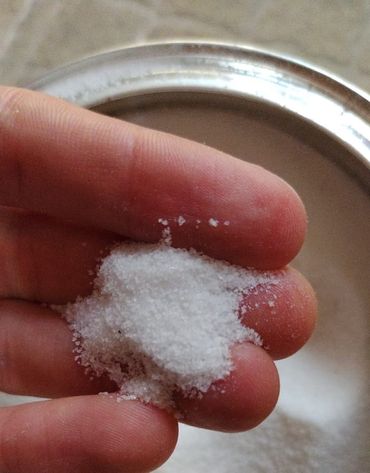 Although the drought caused serious disadvantages to the planting project, some positive outcomes arose from this challenge. Black Jaguar’s field team had to come up with a solution to effectively continue planting trees and adapt to expected future dry periods. At the end of last year, they therefore started experimenting with so-called ‘water retaining polymers’. These polymers, that come in a white powder, absorb water exceptionally well. Upon contacting water, the powder forms a gel that slowly releases water. When this powder is added to soil, (rain) water does not run off, but stays available longer in the soil. The powder itself is biodegradable and will perish over time. When the field conditions became too dry to plant trees, the field team temporarily paused their efforts. They added the polymer powder to the designated area and continued planting thereafter. Thanks to this addition the seedlings had access to more water. If they continue to grow well, using the powder might become a standard procedure. Although the weather forecast predicts a continued dry period, another 70,000 trees can be planted due to this technique. This way, the Black Jaguar Foundation is able to achieve their goal of planting season 2020-2021: the planting of a 100,000 new trees.
Although the drought caused serious disadvantages to the planting project, some positive outcomes arose from this challenge. Black Jaguar’s field team had to come up with a solution to effectively continue planting trees and adapt to expected future dry periods. At the end of last year, they therefore started experimenting with so-called ‘water retaining polymers’. These polymers, that come in a white powder, absorb water exceptionally well. Upon contacting water, the powder forms a gel that slowly releases water. When this powder is added to soil, (rain) water does not run off, but stays available longer in the soil. The powder itself is biodegradable and will perish over time. When the field conditions became too dry to plant trees, the field team temporarily paused their efforts. They added the polymer powder to the designated area and continued planting thereafter. Thanks to this addition the seedlings had access to more water. If they continue to grow well, using the powder might become a standard procedure. Although the weather forecast predicts a continued dry period, another 70,000 trees can be planted due to this technique. This way, the Black Jaguar Foundation is able to achieve their goal of planting season 2020-2021: the planting of a 100,000 new trees.
About the Black Jaguar Foundation
The Black Jaguar Foundation restores nature along the Brazilian Araguaía river, that crosses Amazon rainforest and Cerrado savanna. They create a mosaic of connected native nature by actively restoring nature alongside the river: a biodiversity corridor. This benefits all animals living in the area. All in all, an area of land of 2600 kilometres will be restored. This is the distance from London to Moscow! Almost two billion trees need to be planted in total. Since December, everyone at home can contribute and donate a tree.
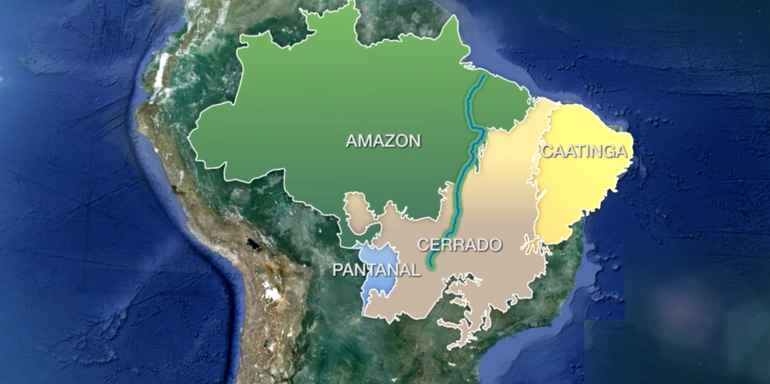
The Black Jaguar Foundation carries out all reforestation activities themselves: mapping the area, selecting the right species for a biodiverse mix of seedlings, setting up tree nurseries, growing seedlings, planting trees and dispersing seeds. They always start by cooperating with local land owners, who are often soybean or livestock farmers.
The Black Jaguar Foundation was founded by the Dutch Ben Valks. All activities are coordinated from the Amsterdam headquarters, and since 2019 an office in São Paulo. A field team works on location. This way, the foundation does not depend on external parties and can quality be guaranteed. Apart from focussing on restoring biodiversity, it is important that local communities benefit from the project. The Black Jaguar Foundation invites farmers to participate with the nature restoration on their lands and provides information about the benefits of biodiversity. Brazilian experts gain the trust of local farmers more quickly than a Dutch team could ever do. This creates a bond of mutual trust that both parties benefit from. Participation is always voluntary, but farmers often have numerous reasons to join. They are currently facing the effects of depleting soil quality after years of farming: it needs more artificial fertilizers, which are expensive. Next to that, depleted soil does not retain any water. This causes crop yields to reduce. Lastly, Brazilian law describes that a certain percentage of land should always be reserved for nature. If a land owner decides to participate, Black Jaguar Foundation pays for all the expenses of the nature restoration. Participation makes adhering to the law easier for farmers. The foundation gives out suggestions on how to sustainably make money from the newly restored nature. Farmers can, for example, harvest certain non-timber forest products, or sustainably sell wood.
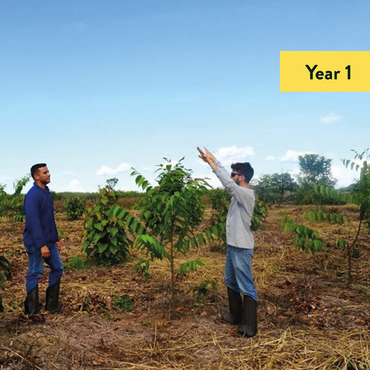
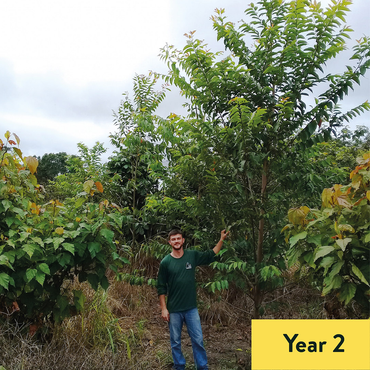
By focussing on biodiversity and cooperating with local communities, a 100,000 trees have been planted already. In 2021, this number will increase to one million! Eventually, a long biodiversity corridor will originate. Flora and fauna can flourish here, as well as the symbol of the foundation, the legendary black jaguar.
Get engaged
Since December, the Black Jaguar Foundation offers everyone the chance to participate in this unique project. On black-jaguar.org/donate-tree/ everyone can donate one or more trees. For just five euro per tree, the whole cycle can be completed: the growing, planting and aftercare of one tree. Everyone can contribute easily to more beautiful nature and compensate their CO2. In return, the donor receives a personal certificate with information about the donated tree. Nice to give as a sustainable gift as well!
Text: Black Jaguar Foundation
Photos: Black Jaguar Foundation; Dimitrio Schievenin
